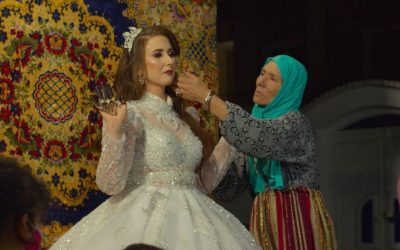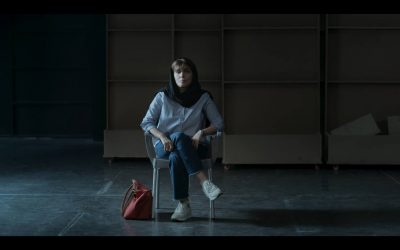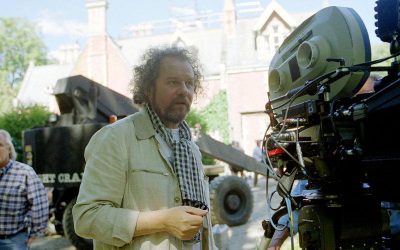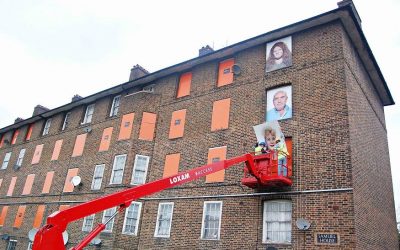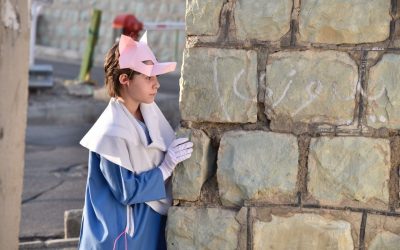Inna Sahakyan is a documentary director, producer, and scriptwriter, born and raised in Yerevan, Armenia. Inna’s work focuses on uncovering untold stories on the nature of humanity via creative and intimate filmmaking. Her her feature-length debut as a director, The Last Tightrope Dancer in Armenia(2010,co-directed with Arman Yeritsyan) The film told the story of two of Armenia’s most celebrated tightrope dancers and was awarded the Best Armenian Film Award at the Golden ApricotIFF, was translated into over ten languages, and aired by many international broadcasters. One of Inna’s recent documentaries, an Armenia-Netherlands co-production, Mel(2021,co-directed with Paul Cohen), follows the story of the once beloved female weightlifting champion whose reputation was tarnished when his identity as a transgender male became public knowledge. The film was awarded a special mention at the Thessaloniki IDFF in 2022 and was aired by NHK (Japan) and (Netherlands). In 2022, Inna completed the feature-length animated narrative documentary Aurora’s Sunrise. A monumental seven-year project made in co-production with Germany & Lithuania, Aurora’s Sunrise, tells the true story of how a fourteen-year-old girl escaped the slaughter of the Armenian genocide and embarked upon an odyssey that took her to the heights of Hollywood stardom.
RedCut: First of all, you made a film about the Armenian genocide. Sometimes called the first genocide of the twentieth century, the Armenian genocide refers to the physical annihilation of Armenian Christian people living in the Ottoman Empire from spring 1915 through autumn 1916. There were approximately 1.5 million Armenians living in the multiethnic Ottoman Empire in 1915. At least 664,000 and possibly as many as 1.2 million died during the genocide, either in massacres and individual killings, or from systematic ill treatment, exposure, and starvation. You are an Armenia filmmaker and producer and you made Aurora’s Sunrise. Could you explain more and what happened when you decided to make this film?
I always thought I wouldn’t delve into the topic of the Armenian Genocide – it’s very personal and heavy for me. Like most Armenians, I grew up with stories of the genocide from both my own family and others’, mostly heavy and inhumane, but always about victims. By the time I became a documentary filmmaker, most survivors had passed away, and there were few archival materials on the Armenian Genocide, limiting my options. But in 2014, I stumbled upon an interview with Aurora Mardiganian while going through the archives of the Zoryan Institute, an academic organisation which has devoted itself to preserving the countless testimonies of genocide survivors. Learning about Aurora’s story from her own interview, I realized I could address my nation’s pain through the voice of a resilient woman. I found my protagonist, someone who, despite all the pain and suffering, never became a victim, but a survivor. She defied her destiny, maintained her humanity in the most inhumane times, and overcame trauma to help others. I wanted her to be a role model for others.”What is done cannot be undone, but one can prevent it from happening again.” These are the words of Anne Frank, a teenage girl who became the voice of the Holocaust. Her story is widely known. Yet, almost no one knows about Aurora Mardiganian, another teenage girl who survived the horrors of the Armenian Genocide thirty years before Anne Frank’s death. Aurora’s story happened over 100 years ago, and the Armenian Genocide remains as the unhealed pain of my nation. The film concludes with an interview of an elderly Aurora in her last years, not seeking vengeance against the perpetrators but advocating for their accountability before the law. She passed away in 1994 without witnessing such accountability. In fact, the United States only recognized the genocide in 2021, while Turkey still denies it. What’s truly disheartening is that the world hasn’t changed much. Genocides and wars persist today in Ukraine, Syria, Palestine, and, especially painfully for me, in Armenia. 120,000 Armenians in Artsakh (Nagorno Karabakh) endured a nine-month blockade, with four months under complete siege, ultimately displaced from their ancestral homeland after military actions by Azerbaijan last September. Despite calls from human rights organizations for intervention to stop the ongoing genocide, the world silently observed these events. I know this may sound idealistic, but after watching this film, I hope people will learn from the past. I hope it will influence people to take a stance against wars and genocides.
RedCut: In the film Mel, Armenia’s most beloved weightlifter becomes the country’s biggest shame when he comes out as transgender. It cost Mel his fame, his fortune, his family, and even his homeland. Today, under asylum in the Netherlands, his dream of gender transition is finally within reach – but how much must he sacrifice for it? Can you talk more details about this film too.

Inna Sahakyan
Imagine you were a champion, a world record holder. But the one who stood on the podium, the one who enjoyed applause and shouts of adoration was someone else. They looked and sounded like you, but they weren’t you. They were someone you hated to the core. This was Mel’s life. Despite being born a woman, Mel knew about his masculine identity from an early age. As one of the most famous athletes in the country, he found the strength to stop his career to be true to himself. Mel was the first major public figure to come out as trans, fighting against societal expectations and facing hardships. He did it for others in Armenia who needed someone like him. His partner was his source of safety and support. Together, they tried to combat societal oppression, but for them, it was a losing battle. With Mel unable to find a job, the couple descended into poverty, coupled with the fear of transphobic violence. It became too much, so they left for the Netherlands. While this might seem like a happy ending for Mel, a chance to fulfill his dreams and be fully accepted, this change cost him not only his homeland and profession but also his love. United by a shared fight against society’s intolerance, they lost their connection in the tolerant Netherlands. Their common dream turned into two separate dreams of a new life. Initially, I thought the film was about a choice, but it became a story about social injustices, immigration issues, the backstage of world-class sports, and, most importantly, the love of a couple. Not just a romance, it questions the essence of love. What does it mean to have love—for ourselves, for others, for our country? What is the cost of following it? And, perhaps most importantly, what happens when love loses its core, and we have to set others free for their happiness?
RedCut: Regarding independent cinema and documentary filmmaking, because it’s not dependent on larger economies, it doesn’t adhere to the ideologies of political economy and capitalism, thus being somewhat more sheltered. What is your opinion on this matter? How should independent documentary filmmakers or filmmakers raise budgets?
The strength of independent cinema and documentary filmmaking lies in its capacity to narrate unique and diverse stories outside mainstream boundaries and expectations. However, this presents two primary challenges – securing budgets and distribution. All my films are created with Bars Media, a boutique yet exceptionally distinctive Armenian documentary studio. We form a close-knit team of dedicated filmmakers, crafting stories from our homeland that captivate international audiences while shedding light on the history, culture, and social life of our country. Each of us engages in various production facets, and I frequently find myself not just directing but also taking on the role of a producer for my films. This entails investing a significant amount of my time in assembling the diverse components of the financial puzzle. Initiating films often involves investing our time and personal funds in the development stage before seeking support from international film funds, grants, and co-production funds. While co-production offers valuable opportunities for independent cinema, it poses a significant challenge for smaller countries like Armenia. It’s a complex issue, but when the funding in your country is limited, but the core of the story is local and the entire artistic team is based there, maintaining a balance between financial and artistic control in the co-production structure becomes challenging. Another obstacle is distribution and audience reach. Despite critical acclaim, festival awards, and positive reviews, independent and documentary films often struggle to secure wide distribution – crucial for filmmaker profits and reaching a broad audience. The post-Covid era, coupled with the surge in streaming platforms, has made theatrical distribution difficult for any independent film. People have shifted from theaters to home viewing, and streaming services predominantly offer mainstream content, leaving independent, arthouse, poetic, and documentary films on the sidelines. Nevertheless, our films aim to be seen, resonate, spark discussions, and make an impact. Hence, we must strategize about distribution from the early stages of development, requiring significant energy and time but providing some assurance that the film will be created and find its own path.
RedCut: What differences do you see between documentary filmmaking and fiction filmmaking as a producer and filmmaker, especially considering that documentaries aim to reconstruct historical truths that have been targeted for erasure by systems of power? What is your opinion on documentary filmmaking concerning the portrayal of historical truths?
When contrasting documentary and fiction cinemas, I’m often reminded of Alfred Hitchcock’s famous remark: “In feature films, the director is God; in documentary films, God is the director.” When addressing the imperative to reestablish historical truth, documentaries hold a great value. Fiction films, even those grounded in real facts, frequently encounter skepticism about the authenticity of the story. Documentaries, however, center around historical evidence, real stories of people from that time, deep historical research, and factual information. The case of Aurora’s Sunrise differs a bit—it’s an animated documentary narrating Aurora’s memories. This medium allows for more artistic license and personal imagination in crafting a story, making it challenging to adhere to the ethical aspect of not crossing the line of documentary truth. However, I diligently maintained a balance between honesty toward my subject and fidelity to my artistic vision. Preserving the film’s documentary structure was crucial, giving Aurora the ability to tell her own story through video testimonies. I added my artistic interpretation of Aurora’s reality from her book alongside other historical sources, derived from extensive historical research, collective memory, and a substantial evidence base. The film has faced opposition from Turkish nationalists and Genocide deniers, attempting to block it from broadcast on various channels and festivals, accusing us of presenting a biased view of historical events. Nevertheless, this has not deterred the film’s path, as it has a robust historical foundation based on evidence. I also want to emphasize that every film, even the most observational documentary, tells the story through the lens of filmmakers. At each stage of film production, decisions were made on how to film, particularly during editing, determining how to frame the story, which can be portrayed in various ways.
RedCut: Do you see structural similarities between the Armenian genocide and the ongoing situation in Palestine? Doesn’t this horrific and traumatic historical precedent of the Armenian genocide raise alarm bells regarding the situation in Palestine?
It’s heart-wrenching to observe the current global events, especially in Palestine. All genocides share a common core, but it’s particularly distressing to witness it happening now by a state that has itself experienced genocide, leaving little hope for humanity. By the way, it says a lot that the state of Israel up to now did not recognize the Armenian Genocide… The absence of consequences for past global crimes has set the stage for new ones. The impunity of the Armenian Genocide served as a precedent for the Holocaust. In 1948, fresh from the trauma of World War II, the United Nations General Assembly adopted the Genocide Convention, ratified by almost every sovereign state globally. There was a period when the world started to believe in the mantra of “Never Again.”
Another unaddressed war crime was the second Nagorno-Karabakh war in 2020, initiated by Azerbaijan during a pandemic in clear violation of peace processes and international conventions. After winning, the autocratic president, Ilham Aliyev, dismissed peace negotiations in a televised speech, praising the effectiveness of violence: “Only force matters.” The world remained silent, and it became a grim motto for our times. This silence extended not only to Russia’s invasion of Ukraine but also to the genocides in Palestine and Nagorno-Karabakh. I hope that international justice will be restored, and I’ve been following South Africa’s case against Israel at the International Court of Justice. However, I fear that even if rulings are established, they may not be enforced, revealing the world’s realization that justice lacks power. This is deeply painful for me.
RedCut: Do you have a project in production or planning? Could you provide a bit of detail about it?
After a topic as intense as the genocide of my own people, I was looking for a lighter, more positive, yet still meaningful topic. Surprisingly, I stumbled upon such a topic in an elderly care home, an environment typically associated with heaviness. This particular home in Armenia is unique- with an elders’ theater, alongside an AI-powered robot serving as a counselor for the elderly. So, the documentary is called “Shakespeare Goes Armenian” and follows the theater group of old residents as they are staging Shakespeare. The film is in the early production stage and I am co-directing it with a great young filmmaker Lilit Movsisyan. We learn a lot from our characters– it is never too late to dream, love, create, and enjoy life. But of course, I cannot stand aside from what has been happening with my people in recent years, the 2020 war and the recent ethnic cleansing of the Armenian population in Artsakh (Nagorno Karabakh). I faced a similar dilemma as with the topic of the Armenian Genocide – not wanting to discuss such crucial subjects only through suffering and pain. Recently, I met a woman who is fighting to restore justice for the aforementioned crimes not on the battlefields but through the power of international law in courtrooms. I can’t reveal much about this project at this stage – it’s in development and has many confidential aspects, but it will document an ongoing battle against the denial of crimes and a pursuit for change, even if its fruition is meant for future generations.


